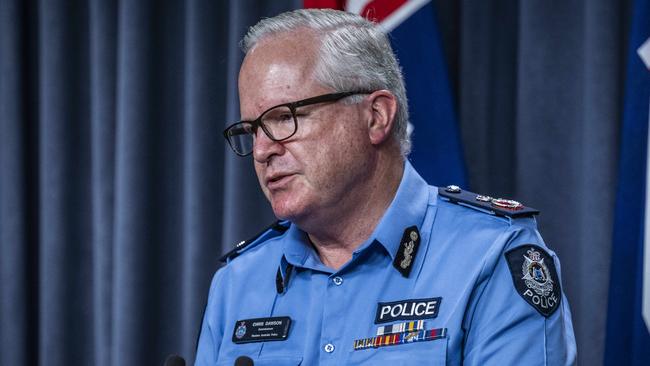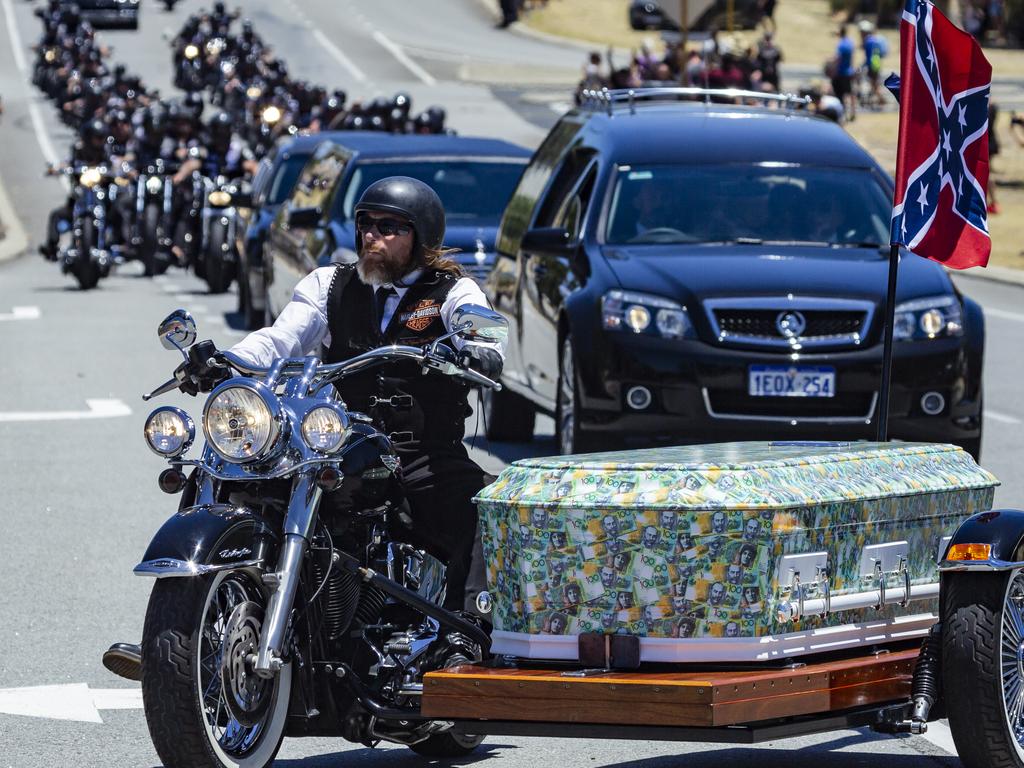Coronavirus: WA police commissioner Chris Dawson not sorry over Covid-19 data breach
States have scrambled to assure the public that their check-in systems did not have loopholes after WA police used the data for investigations.

Revelations that West Australian police were using Covid-19 check-in data as part of their investigations have raised questions over the integrity of other registration systems around the country.
The WA government on Tuesday introduced emergency legislation aimed at preventing law enforcement and other agencies from accessing records compiled through the state’s SafeWA app.
The move came in response to police twice using the data in their efforts to find the perpetrators of a murder and a stabbing.
States around the country scrambled to assure the public their check-in systems did not have similar loopholes and the data would be used only for its intended purpose.
Victoria was the only state to acknowledge police could potentially access Covid-19 registration data, with investigators there allowed to apply for court orders to access information.
Acting Victorian Premier James Merlino said all QR code information was encrypted and kept for a maximum of 28 days.
“If there's any request for access to that data from Victoria Police, that would be via a court order,” he said.
He was not aware of Victoria Police having made any court applications to access the data.
Government and police representatives in NSW, South Australia, Queensland and Tasmania all said the data was for use only by health officials as part of their contact tracing efforts.
Michael Wilson, a lecturer in criminology at Murdoch University’s School of Law, said such assurances had little value if they were not enshrined in legislation.
“Unless they are restricted by the force of law, [police] are going to want to get access to that,” he said. “I wouldn’t have faith and I wouldn’t take it at face value from the words of premiers, prime ministers or police commissioners that they are not going to access that data if specific restraints aren’t clearly ingrained in law.”
NSW had already ruled out anyone other than contact tracing teams from accessing data collected though the state’s Service NSW check-in app under the NSW Public Health Order.
Section 26A of that order specifies that “to avoid any doubt, it is directed that contact details provided … are to be used only for the purposes of contact tracing during the Covid-19 pandemic”.
A Service NSW spokesman said data collected through the app could not be accessed by police.
SA Police Commissioner Grant Stevens said the state’s QR code system had been designed to ensure the information was off-limits from SA Police. “I can assure you the information is not accessible by South Australia Police, it will only be accessed by SA Health if the venue that you’re talking about is the subject of a positive case that needs to be tracked down,” he said.
“The information is encrypted and stored in a central location and can only be accessed by heath for contact tracing purposes. I think you can be comfortable that the anonymity you’re looking for will still be protected.”
A spokeswoman from Queensland’s Department of Communities, Housing and Digital Economy said the state’s police had not accessed any data held by the Check in Qld app.
A Tasmania Police spokeswoman said it did not and had not accessed data from the “Check In Tas”app.
WA Police first sought access to the data over a bikie shooting in December, just weeks after check-ins using the SafeWA app were made mandatory.
WA Premier Mark McGowan and Health Minister Roger Cook said at that time that the data would be encrypted, stored securely and accessible only by contact tracing personnel in the event of an outbreak.
Mr McGowan said this week he had found out in April that police had accessed the data and had asked police commissioner Chris Dawson to stop accessing it but was rebuffed, prompting the government to draft legislation to put the data off limits.
Mr Dawson on Wednesday said he had no regrets over the police force’s use of the data, telling Perth radio station 6PR the data had been accessed lawfully and in exceptional circumstances.
Additional reporting: Max Maddison, Rachel Baxendale, Lydia Lynch, David Penberthy, Matthew Denholm








To join the conversation, please log in. Don't have an account? Register
Join the conversation, you are commenting as Logout